The Greatest Booker Prize Winning Books of All Time
The Top 10

The Booker Prize, formerly the Man Booker Prize, is one of the most important events of the year for people like me. It is a prize offered for some of the best books written in the year. I love learning about the new books out every year and with the winners, you can definitely see what the reading trends are across the world and, with political and social climates, you can probably tell why.
The Booker Prize gives light to not only the best books written in the year but it also gives light to the best written books across a certain amount of space. Obviously, we have the national and the international award. I'm not going to lie when I say that the international winners tend to be better than just the national ones, purely because of the fact that the playing field is bigger and there is far more competition. The judging is harsher and requires there to be more boundaries to beat. The international Booker Prize requires so many different things in comparison to the national one.
I want to go through my top favourite Booker Prize Winners and will be including both national and international winners. We won't be including any books that didn't win the national or international prize, even if they were shortlisted. This is simply for the winners. I hope you enjoy this list of books and take to reading some of them, because they were seriously some of the best books of the year.
10. The Sea, The Sea by Iris Murdoch (1978)
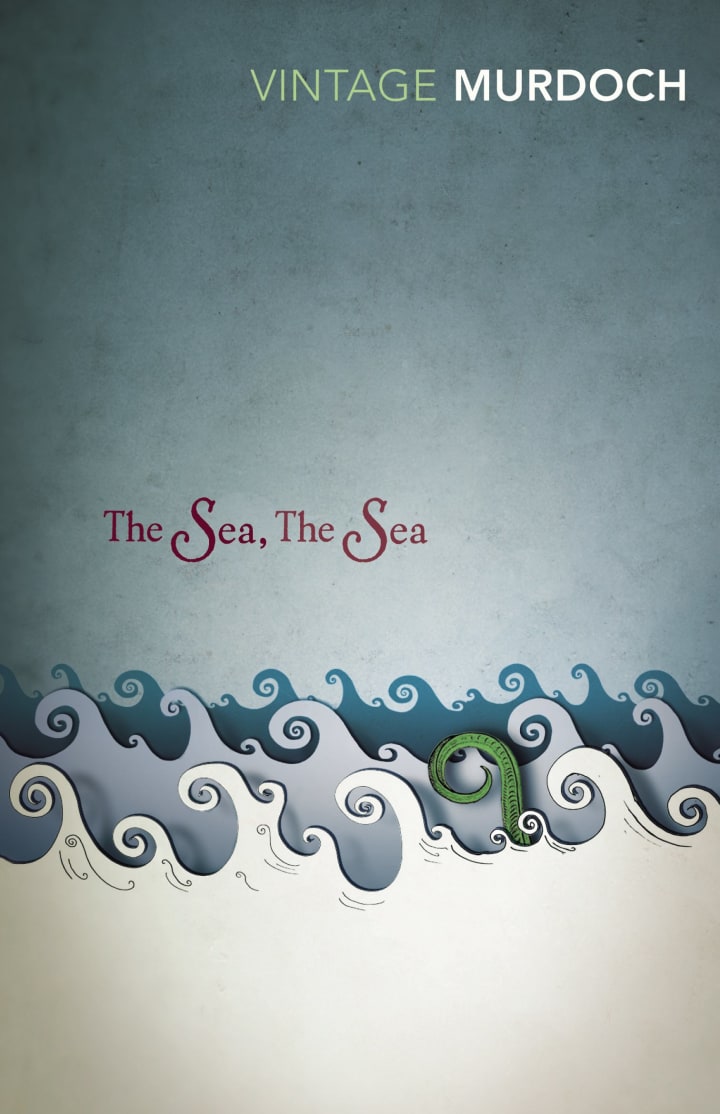
“Then I felt too that I might take this opportunity to tie up a few loose ends, only of course loose ends can never be properly tied, one is always producing new ones. Time, like the sea, unties all knots. Judgements on people are never final, they emerge from summings up which at once suggest the need of a reconsideration. Human arrangements are nothing but loose ends and hazy reckoning, whatever art may otherwise pretend in order to console us.”
9. Schindler's Ark by Thomas Keneally (1982)
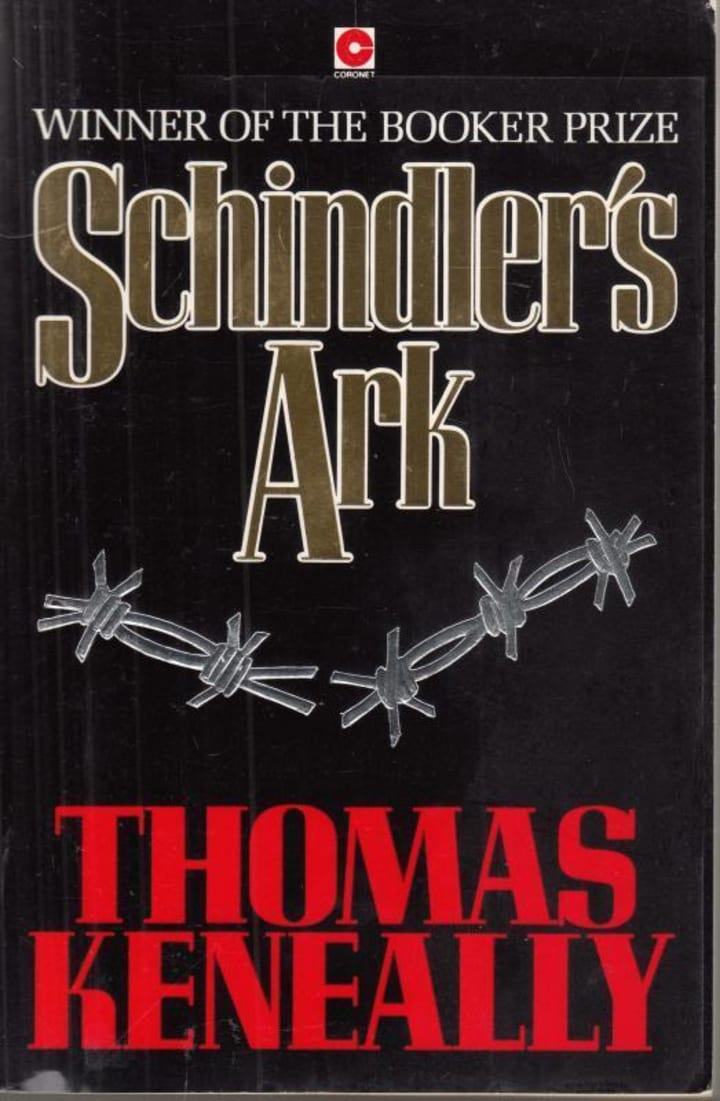
“Even among Sedlacek's own small cell, his Viennese anti-Nazi club, it was not imagined that the pursuit of the Jews had grown quite so systematic. Not only was the story Schindler told him startling simply in moral terms: one was asked to believe that in the midst of a desperate battle, the National Socialists would devote thousands of men, the resources of precious railroads, and enormous cubic footage of cargo space, expensive techniques of engineering, a fatal margin of their research-and-development scientists, a substantial bureaucracy, whole arsenals of automatic weapons, whole magazines of ammunition, all to an extermination which had no military or economic meaning but merely a psychological one.”
8. The Remains of the Day by Kazuo Ishiguro (1989)
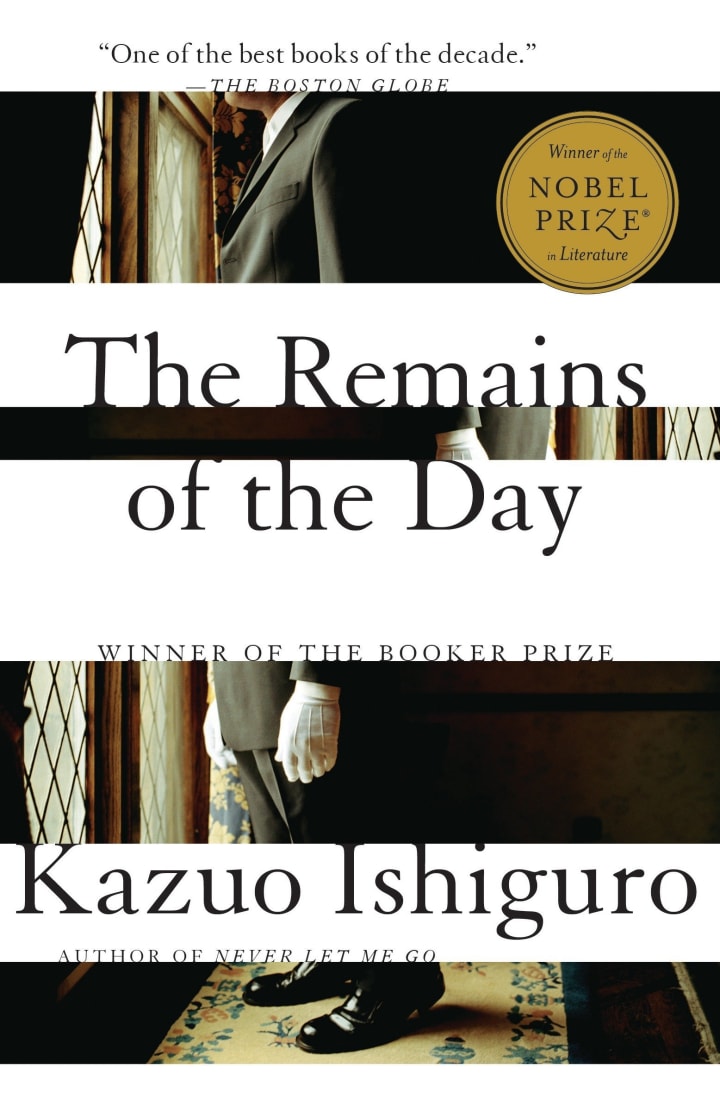
“But what is the sense in forever speculating what might have happened had such and such a moment turned out differently? One could presumably drive oneself to distraction in this way. In any case, while it is all very well to talk of 'turning points', one can surely only recognize such moments in retrospect. Naturally, when one looks back to such instances today, they may indeed take the appearance of being crucial, precious moments in one's life; but of course, at the time, this was not the impression one had. Rather, it was as though one had available a never-ending number of days, months, years in which to sort out the vagaries of one's relationship with Miss Kenton; an infinite number of further opportunities in which to remedy the effect of this or that misunderstanding. There was surely nothing to indicate at the time that such evidently small incidents would render whole dreams forever irredeemable.”
7. The God of Small Things by Arundhati Roy (1997)
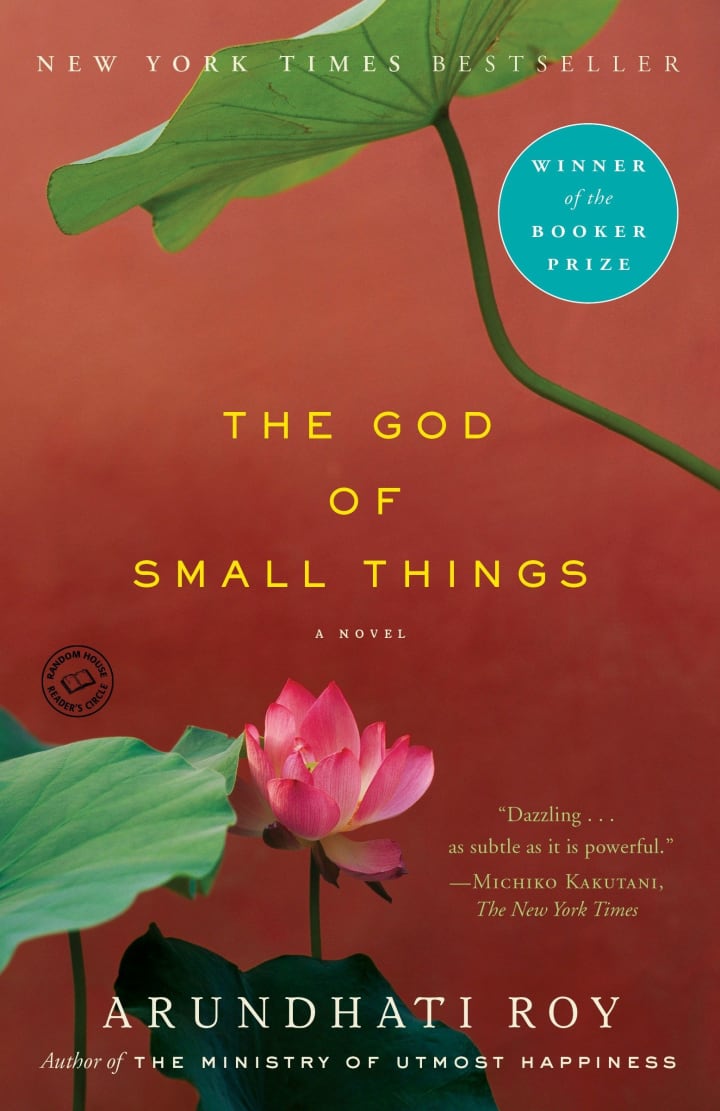
“...the secret of the Great Stories is that they have no secrets. The Great Stories are the ones you have heard and want to hear again. The ones you can enter anywhere and inhabit comfortably. They don’t deceive you with thrills and trick endings. They don’t surprise you with the unforeseen. They are as familiar as the house you live in. Or the smell of your lover’s skin. You know how they end, yet you listen as though you don’t. In the way that although you know that one day you will die, you live as though you won’t. In the Great Stories you know who lives, who dies, who finds love, who doesn’t. And yet you want to know again. That is their mystery and their magic.”
6. The True History of the Kelly Gang by Peter Carey (2001)
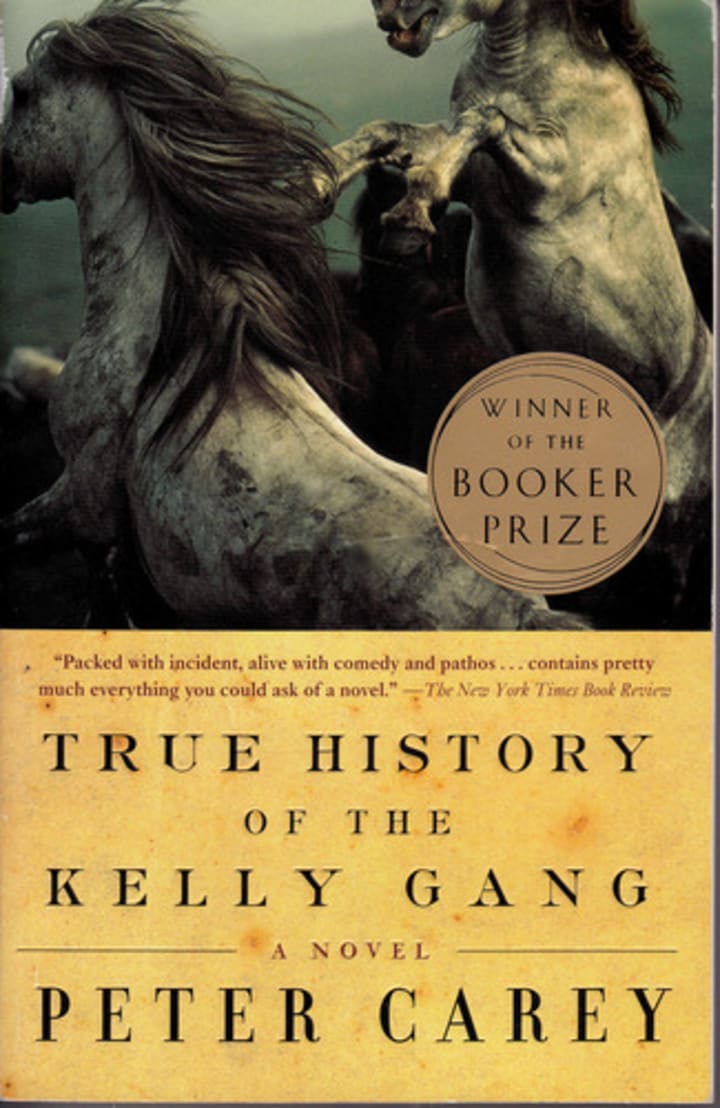
“Your grandfather were a quiet and secret man he had been ripped from his home in Tipperary and transported to the prisons of Van Diemen's Land I do not know what was done to him he never spoke of it. When they had finished with their tortures they set him free and he crossed the sea to the colony of Victoria. He were by this time 30 yr. of age red headed and freckled with his eyes always slitted against the sun. My da had sworn an oath to evermore avoid the attentions of the law so when he saw the streets of Melbourne was crawling with policemen worse than flies he walked 28 mi. to the township of Donnybrook and then or soon thereafter he seen my mother. Ellen Quinn were 18 yr. old she were dark haired and slender the prettiest figure on a horse he ever saw but your grandma was like a snare laid out by God for Red Kelly. She were a Quinn and the police would never leave the Quinns alone.”
5. Bring Up the Bodies by Hilary Mantel (2012)
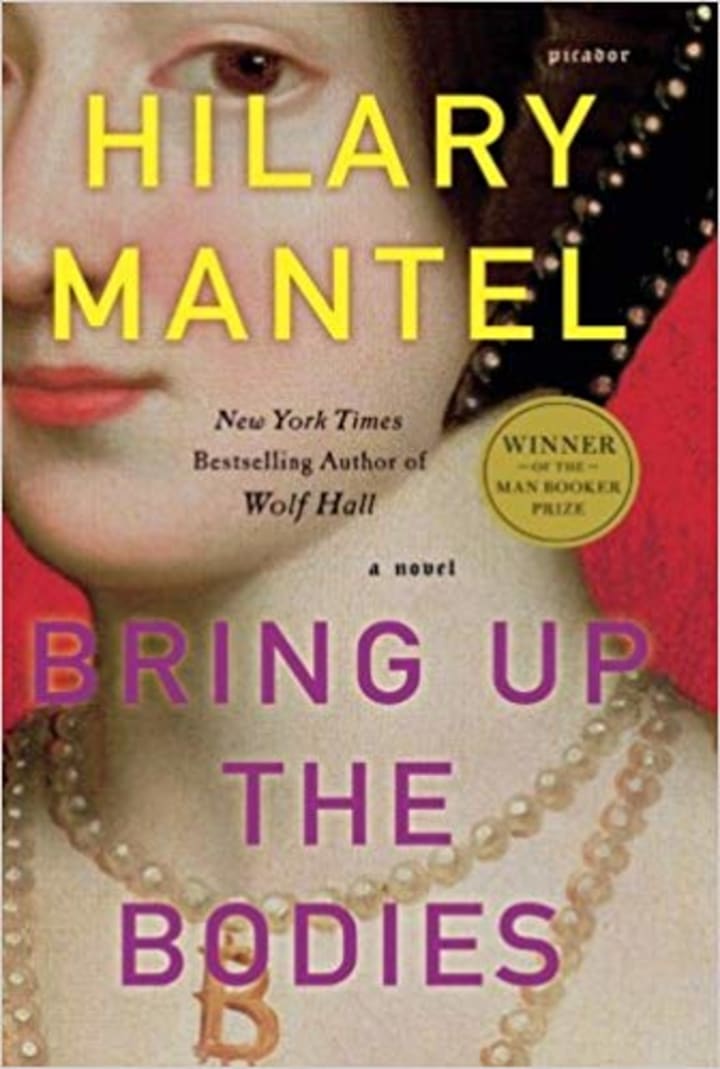
“Once he had watched Liz making a silk braid. One end was pinned to the wall and on each finger of her raised hands she was spinning loops of thread, her fingers flying so fast he couldn’t see how it worked. ‘Slow down,’ he said, ‘so I can see how you do it,’ but she’d laughed and said, ‘I can’t slow down, if I stopped to think how I was doing it I couldn’t do it at all.”
4. The Sense of an Ending by Julian Barnes (2011)
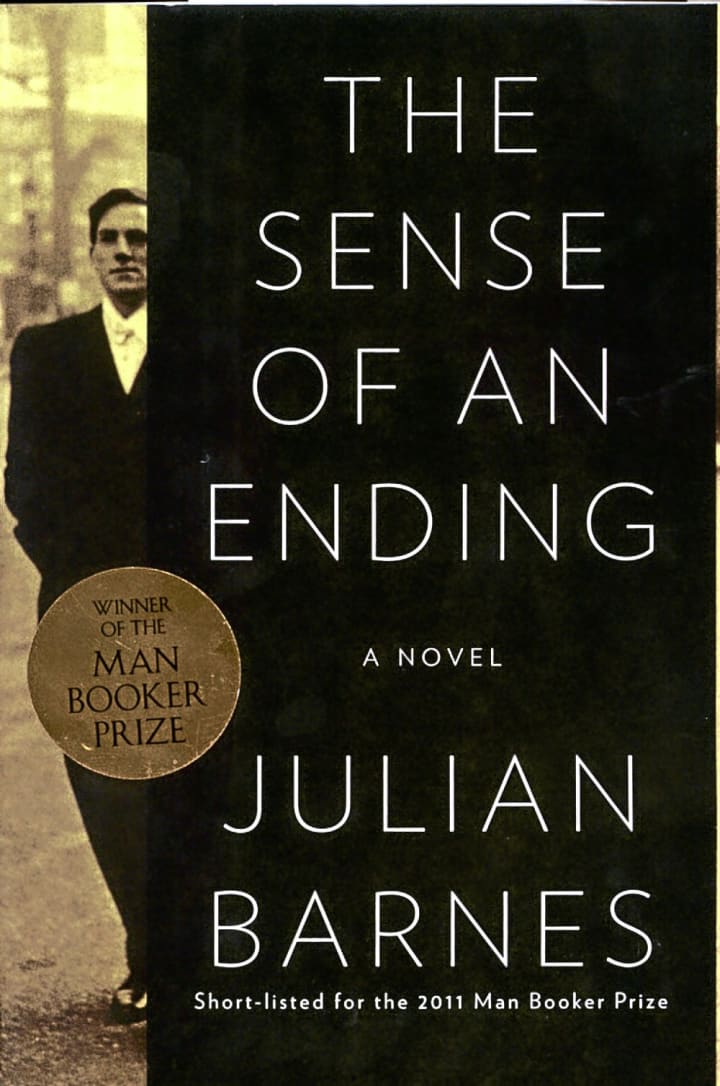
“I certainly believe we all suffer damage, one way or another. How could we not, except in a world of perfect parents, siblings, neighbours, companions? And then there is the question on which so much depends, of how we react to the damage: whether we admit it or repress it,and how this affects our dealings with others. Some admit the damage, and try to mitigate it;some spend their lives trying to help others who are damaged; and there are those whose main concern is to avoid further damage to themselves, at whatever cost. And those are the ones who are ruthless, and the ones to be careful of.”
3. Hotel du Lac by Anita Brookner (1984)
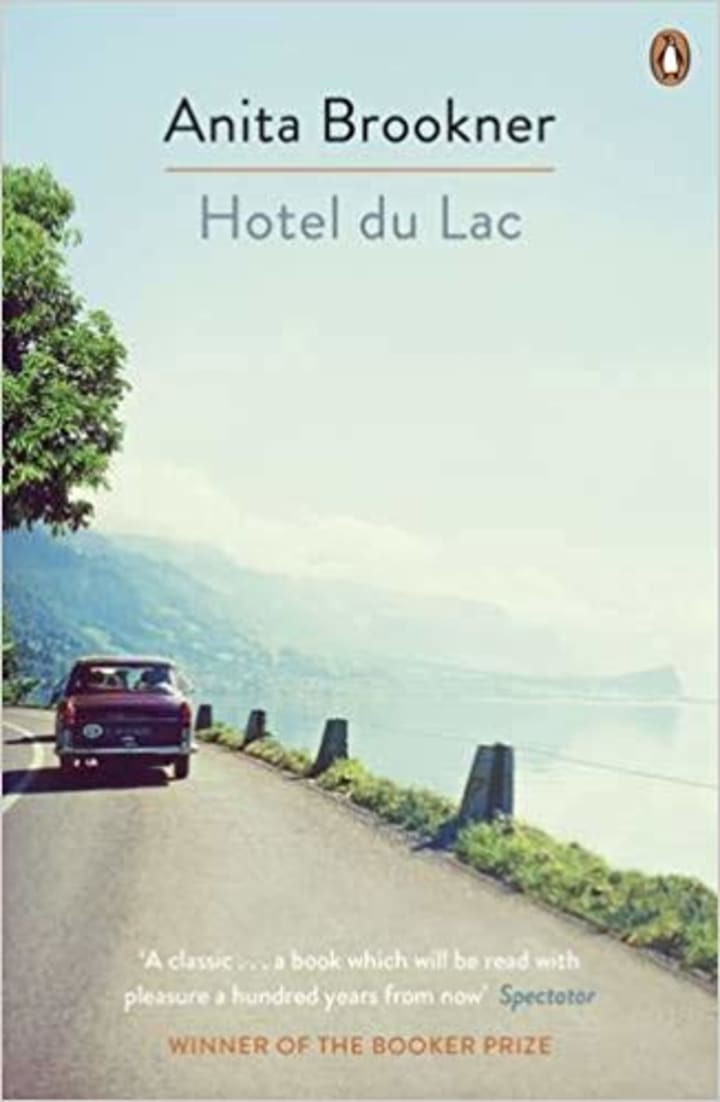
“A woman owes it to herself to have pretty things. And if she feels good she looks good. You are wrong if you think you cannot live without love. I cannot live without it. I do not mean that I go into a decline, develop odd symptons, became a caricature. I mean that I cannot live well without it. I cannot think or act or speak or write or even dream with any kind of energy in the absence of love. I feel excluded from the living world. I become cold, fish-like, immobile. I implode. My idea of absolute happiness is to sit in a hot garden all day, reading or writing, utterly safe in the knowledge that the person I love will come home to me in the evening. Every evening. I am not a romantic. I am a domesticated animal. I do not sigh and yearn for extravagant displays of passion, for the grand affair, the world well lost for love. I know all that, and know that it leaves you lonely. No, what I crave is the simplicity of routine. An evening walk, arm in arm, in fine weather. A game of cards. Time for idle talk. Preparing a meal together.”
2. Lincoln in the Bardo by George Saunders (2017)
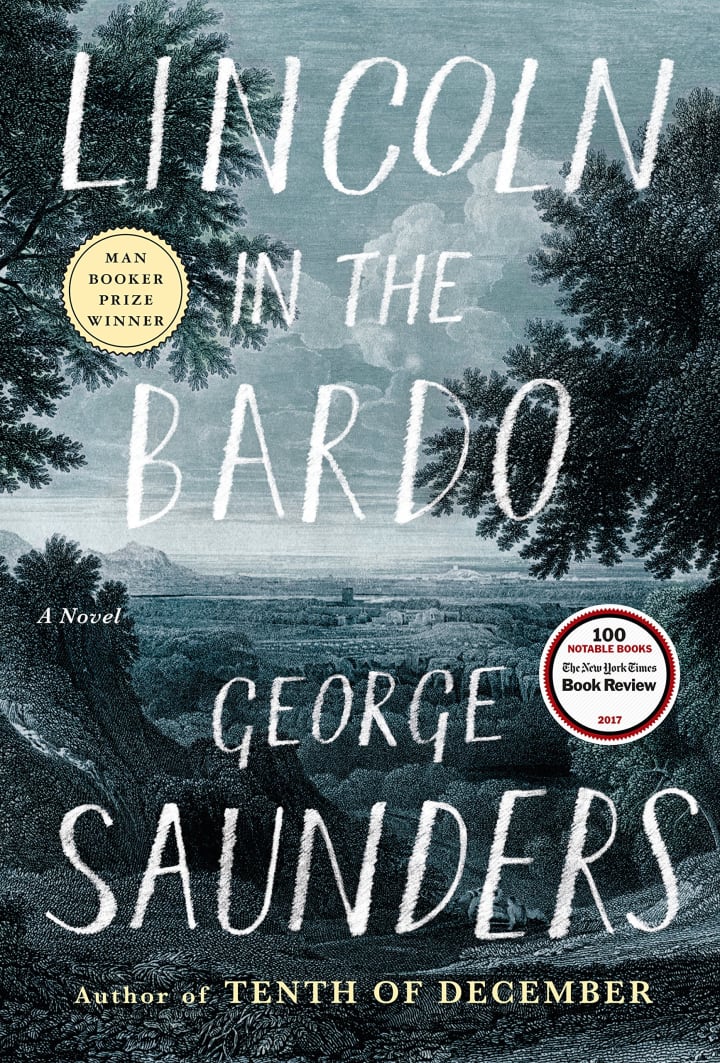
“His mind was freshly inclined toward sorrow; toward the fact that the world was full of sorrow; that everyone labored under some burden of sorrow; that all were suffering; that whatever way one took in this world, one must try to remember that all were suffering (none content; all wronged, neglected, overlooked, misunderstood), and therefore one must do what one could to lighten the load of those with whom one came into contact; that his current state of sorrow was not uniquely his, not at all, but, rather, its like had been felt, would be felt, by scores of others, in all times, in every time, and must not be prolonged or exaggerated, because, in this state, he could be of no help to anyone and, given that his position in the world situated him to be either of great help, or great harm, it would not do to stay low, if he could help it.”
1. A Brief History of Seven Killings by Marlon James (2015)
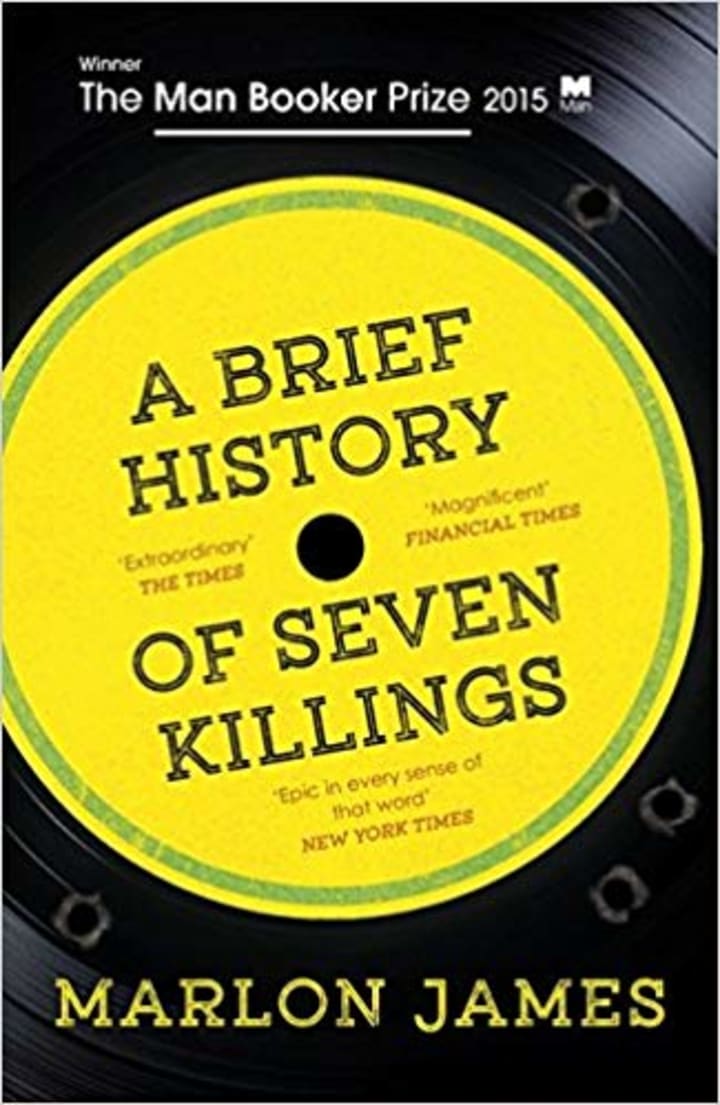
“My mother sings One day at a time sweet Jesus, and even Daddy likes to say that, one day at a time, as if it’s some strategy for living. And yet the quickest way to not live at all is to take life one day at a time. It’s the way I’ve discovered to not do a damn thing. If you can break a day down into quarters, then hours, then half hours, then minutes, you can chew down any stretch of time to bite size. It’s like dealing with losing a man. If you can bear it for one minute, then you can swallow two, then five, then another five and on and on. If I don’t want to think about my life, I don’t have to think about life at all, just hold for one minute, then two, then five, then another five, before you know it, a month can pass and you don’t even notice because you’ve only been counting minutes.”
About the Creator
Annie Kapur
200K+ Reads on Vocal.
English Lecturer
🎓Literature & Writing (B.A)
🎓Film & Writing (M.A)
🎓Secondary English Education (PgDipEd) (QTS)
📍Birmingham, UK






Comments
There are no comments for this story
Be the first to respond and start the conversation.